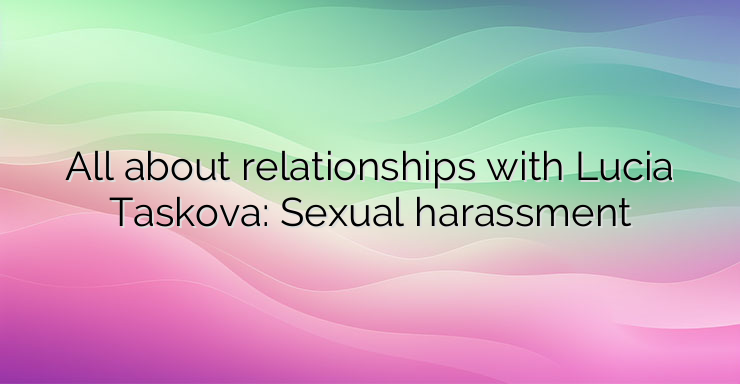How much violence can be contained the moment you become the recipient of unexpected, abusive behavior? And how does it nestle in your soul? Can sexual harassment become trauma? The knot in the victim’s psyche, which as they try to ignore, to pretend that it is not there, tightens more and more, causing pain and fear. This knot seems inextricable. Survivors of sexual harassment carry it with them no matter how much time has passed. Why are they trying to ignore it? They may not know how it will resolve once they start talking about their experience. Like the silent knot of trauma in the victim’s soul, so is sexual harassment in the social fabric. A problem we all know exists. It has happened to some of us, to some girlfriends, friends, relatives or colleagues, but no one talks about it openly. The topic of sexual harassment is significant, both personally and socially. Sexual abuse can lead to deep traumas that can cause serious mental disorders. The occurrence and severity of the trauma depend on the strength and endurance of the victim’s psyche, his history, the support he has or does not have from his family, professional, social environment, financial independence. The more vulnerable a person is to the above factors, the more likely they are to develop psychological trauma with serious consequences (reduced productivity, job loss, anxiety, depression, substance or alcohol abuse, somatization, self-destruction, etc.). An important role is also played by the intensity of sexual harassment, its repetition, its duration over time and the lack of a deterrent institutional framework that protects human dignity in the workplace, community training, etc. A large number of victims do not share or talk about the trauma of sexual harassment because they feel shame, fear, and sometimes guilt for causing the event and not being able to control the situation. Perhaps the most important factor preventing a victim from reporting is mistrust of how they will be treated by relevant authorities (police, medical personnel, judges, employer, university authorities, family, etc.). A simple reference to the topic of “sexual harassment” is enough to understand that this is not a problem, but a whole chapter, and that its boundaries are so blurred that at the end of any discussion, a female victim can be labeled as exaggerating and a male as be punished for flirting that will eventually be criminalized. In sexual harassment, which is a form of verbal or physical sexual violence, the perpetrator unleashes primitive aggressive and sexual instincts in defiance of cultural imperatives. Sexual harassment has many faces and they are all bad. When we go out, we mentally calculate how likely we are to experience some kind of sexual harassment today. Unsolicited comments about our appearance,invasion of personal space or many times just a glance can make us feel like we are being touched by mud and want to run away and hide in a safe environment. Sexual harassment makes us feel like an object, like an object. Physical and verbal sexual harassment follows us everywhere, on the streets, in social circles, in the workplace, in academia and in our own homes. It’s tiring to constantly think about whether today will just make us uncomfortable or become life-threatening. Sexual harassment is when someone does or says something with a sexual context and the other person does not want to receive such messages. The great successes of women in various fields have intensified an already existing crisis in gender relations. This crisis is also related to the balance between the male and female parts of a man’s psyche. The old balance is threatened because women’s inferiority and subordination at the social level have given way. This necessitates changes in the expression of masculinity: that is, the man must find a new masculine identity to suit contemporary social conditions. And sometimes it happens that the man tries to demonstrate his masculinity by showing violence, which is an extremely unhealthy relationship model. There is one moment that can change everything. This moment does not come suddenly, but is the result of maturation, awareness and other factors. It is not a question of a decision, but a decision that hides strength, maturity and awareness. This is the moment when the victim decides to tell about the experience. Maybe then he gets other victims to do it.which hides in itself strength, maturity and awareness. This is the moment when the victim decides to tell about the experience. Maybe then it gets other victims to do it.which hides in itself strength, maturity and awareness. This is the moment when the victim decides to tell about the experience. Maybe then he gets other victims to do it.


Leave a Reply